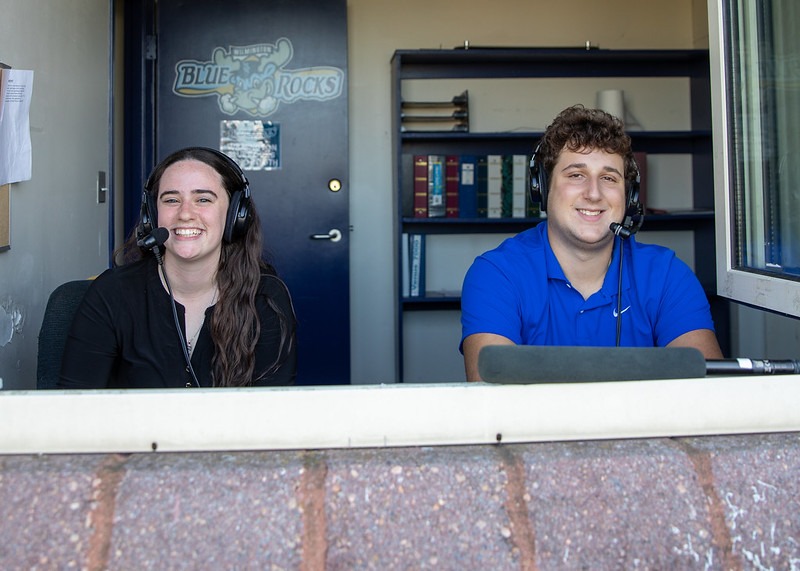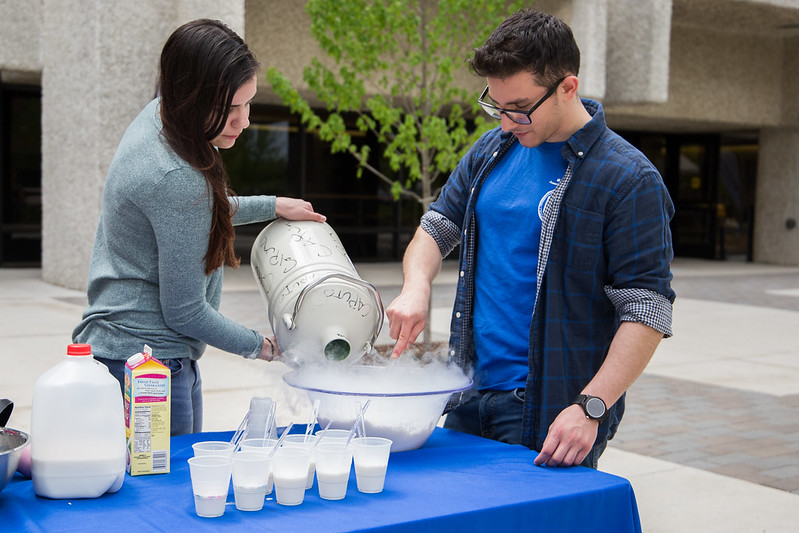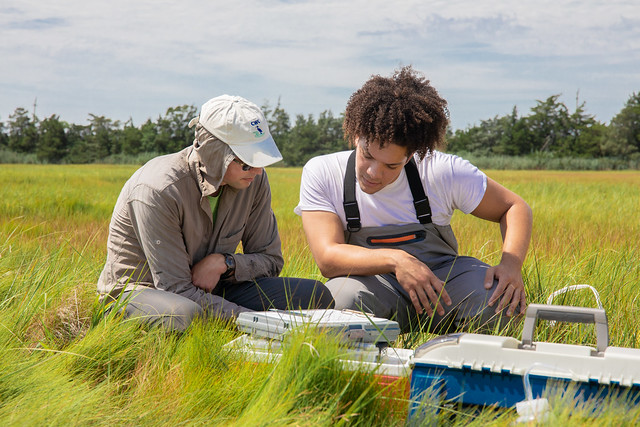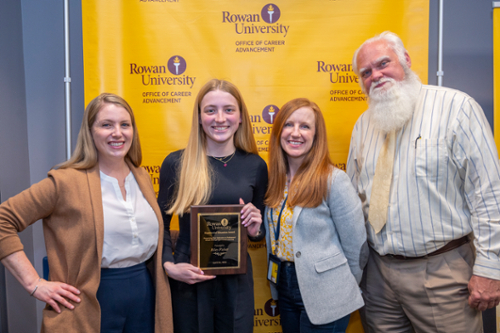Experiential Education
Experiential Education
Experiential Education at Rowan University
At Rowan University, we firmly believe real world projects are essential to a students success. Internships, project-based work, field experience, and research are just some of the different types of experiential education programs that can help student in today's market.Quick Reference Links

Internships
Find internship resources, forms, Rowan's top employers, and our Rowan University internal jobs database, ProfsJobs.

Experiential Education Programs
Education abroad, volunteering, and project based learning are some of the experiential education programs here at Rowan University.

Student Employment
Student employment opportunities, processes, forms and managers hiring information.

Experiential Education Interest Form
Interested in learning more about experiential education programs, please fill out this form and we will get back with you.

Experiential Education Award Winners
2024 Experiential Education award winners.

Frequently Asked Questions
Frequent Questions asked by students and alumni.
ProfsJobs
Search for full-time, part-time, summer and internships positions. Have your resume critiqued and posted in the electronic resume bank. View upcoming career fairs and on campus interview events. It's convenient, user friendly and FREE! The PROFS JOBS system is a web-based program accessible from any computer with internet access 24 hours a day, seven days a week. And it's only for Rowan students and alumni.
Click here PROFS JOBS
Forage
Forage
Forage is a FREE online resource that offers virtual day-in-the-life experience programs designed by leading companies. Develop your skills and gain a better understanding of different roles and sectors by working through these self-paced modules that utilize tasks similar to those you would undertake during a traditional internship.
During the program, you will work through a set of materials and tasks set by leading companies, which are designed to replicate the sort of work that you would undertake while working for that company. All Forage programs are self-paced (taking between 2 to 4 hours to complete) ensuring ultimate flexibility!
These programs include:
- Video instructions and materials created by employees within your chosen organization/field
- Work that reflects real day-to-day tasks of interns and graduates
What are the benefits:
- Sample what work is like at leading companies
- Discover career paths that you may not have previously considered
- Build confidence and gain skills to prepare for you for your career
Forage is completely FREE for students and is tailored to fit your schedule, without any lengthy application process.
To learn more about Forage, and join 4 million students worldwide, get started here!
Big Interview
When preparing for a job interview, it's not enough to only read advice - you need to put that advice into practice! That's why Big Interview isn't just a training course. You'll also get hands-on practice with mock interviews tailored to your specific major or area of interest.
Global Tech Experience
Rowan University is proud to announce the launch of the Rowan University Global Tech Experience, a virtual internship and experiential learning program.
Beginning this Spring, all undergraduate students will have a unique opportunity to gain in-demand skills and real-world experience alongside peers from around the world.
Profs Connect
Links current students, alumni, faculty, staff and friends of the University to create mentoring, networking and engagement opportunities.
CareerShift
Focus 2
FOCUS 2 is an online, interactive career & education planning system that combines self-assessment, career exploration and decision making into one comprehensive program. FOCUS 2 can help students map out a career path and select the right major area of study offered at their school to support their career goals.